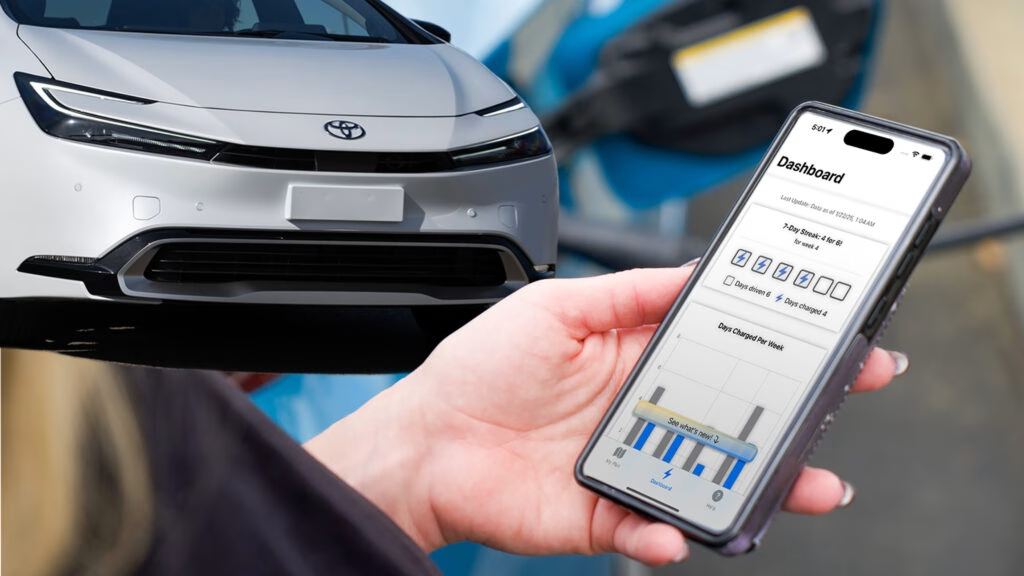Why Do So Many Plug-In Hybrid Owners Skip the Plug?
Here’s a quirky truth: a surprising number of plug-in hybrid (PHEV) drivers rarely plug in their cars. You’d think buying a vehicle with a charging port would mean using it, right? But Toyota’s research arm found that plenty of PHEV owners treat their cars like regular hybrids, running mostly on gas and ignoring the electric side. It’s a bit like buying a fancy espresso machine and only ever making instant coffee. So, what’s behind this odd behavior? For many, it’s simply habit—or lack thereof. Charging can feel like an extra chore, especially if you’re used to the convenience of gas. And if you’re not seeing immediate savings or environmental benefits, motivation fizzles fast.
How Is Toyota Using Behavioral Science to Change Charging Habits?
Toyota decided to tackle this head-on, not with more hardware, but with a clever app called ChargeMinder. The idea? Use behavioral science to nudge drivers into better charging routines. Think of it as a fitness tracker, but for your car’s battery. ChargeMinder sends push notifications, tracks your charging streaks, and even tosses in motivational messages or quick quizzes to keep things interesting. The app taps into your vehicle’s telematics and local charging data, so the reminders aren’t just generic—they’re tailored to your habits and schedule.
Why does this matter? Because even the greenest tech can’t cut emissions if people don’t use it right. Toyota’s own experts point out that consistent charging—especially when renewable energy is most available—makes a real dent in both your carbon footprint and your wallet. It’s not just about plugging in more often, but plugging in smarter.
What Do the Numbers Say About ChargeMinder’s Impact?
Let’s get to the results. In randomized controlled trials across the US and Japan, ChargeMinder made a measurable difference. In the US, PHEV charging rates jumped by 10 percent. Satisfaction scores? Up by 16 percent, hitting a perfect 100. In Japan, drivers shifted their charging to coincide with peak renewable energy hours 59 percent more often, and plugged in for an extra half hour each day during daylight. That’s not just a blip—it’s a real change in behavior.
Dr. Laura Libby from the Toyota Research Institute summed it up well: small, targeted nudges can have a big impact, and these interventions are quick and inexpensive to roll out. It’s a classic case of working smarter, not harder.
How Does ChargeMinder Compare to Other EV Apps?
There are plenty of apps out there that help you find charging stations or monitor your battery. But ChargeMinder stands out because it’s not just about logistics—it’s about psychology. By gamifying the process and offering rewards, it taps into the same dopamine loops that make you check your step count or keep a Snapchat streak alive. The app’s personalized approach, using real-time vehicle and location data, means it can suggest the best times and places to charge, making it easier to build a sustainable habit.
What’s Next for ChargeMinder and EV Charging Habits?
ChargeMinder is still a prototype, but Toyota’s research team is already working on ways to make it even more personalized and data-driven. While there’s no official word on when it’ll hit app stores, the early success suggests it’s only a matter of time before tools like this become standard for EV and PHEV owners. And as more automakers and tech companies jump into the behavioral science game, expect to see even smarter, more engaging ways to help drivers get the most out of their electrified rides.
The big takeaway? Building better charging habits isn’t about perfection—it’s about smarter adjustments. Start with one change this week, and you’ll likely spot the difference by month’s end.

